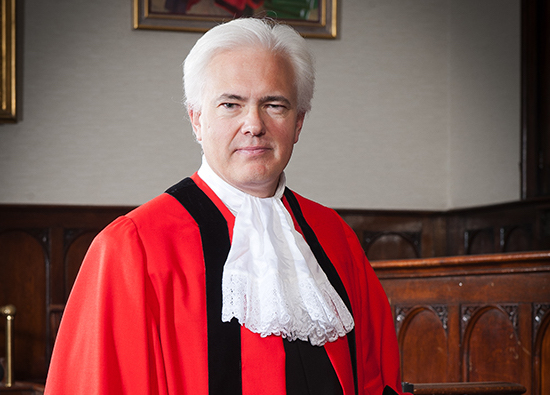


On Friday, a rape trial that had lasted all week came to an abrupt and unexpected end, when the jury and the defendant were both discharged.
With just a brief few words, the Deputy Bailiff, Robert MacRae, brought proceedings to a close.
Seconds later, the six men and six women of the jury stood up and went home, and soon after, 43-year-old Vikas Dhar, who had been accused of two counts of rape after threatening a woman with a knife, walked across the Royal Square towards Library Place a free man.
He had his liberty but he was neither convicted nor acquitted, guilty nor not guilty. This judicial vacuum had been created because the jury could not decide if he did what the Crown had methodically argued he had done, but his defence lawyer had eloquently denied.
As Express readers who followed the trial last week might have deduced, it was a case whose narrative was blurred by alcohol, inconsistency and unknowns.
Police body-worn cameras that should have provided evidence were switched off, muffled words caught on CCTV could not be deciphered and large parts of the evening in question could not be recalled by the woman who said she was raped.

Pictured: The trial was presided over by Deputy Bailiff Robert MacRae.
And sitting in the dock was the impassive Mr Dhar, who did not give evidence; his only words in court spoken by lawyers and witnesses recalling police interviews and court transcripts.
An Indian national, his answers to police questions in broken English could also be interpreted in different ways - something highlighted by his defence.
And adding to the difficulty for the jury was that the woman said that rape had followed consensual sex and foreplay, which made the medical evidence more open to question. Even DNA analysis was described by an expert as “inconclusive”.
So too was the woman’s initial response to the alleged rape, describing Dhar in her first call to police as a “bald Polish or Romanian man”. The Prosecution argued that it was normal for rape victims to be highly anxious and prone to mistakes but it was an inaccuracy that was obviously pointed out by the defence.
There was inconsistency in Mr Dhar’s account too. He denied during his trial that penetrative sex had taken place but admitted that it had, the Crown argued, in a previous bail hearing in the Magistrate’s Court.
Taken together, the unanswered questions prevented the jury from reaching a consensus. Not even a majority of them - ten of the 12 required - could agree. They had to be sure of guilt, and they weren't, so they were discharged. And under Jersey law, Mr Dhar was also discharged, on the simple basis that if 12 members of the public couldn’t agree, why would another jury - hearing exactly the same evidence - reach any other conclusion?
And in a small island, how realistic would it be to find a jury completely oblivious of this case?
Mr Dhar is now able to return to India after six months of incarceration, preceded by four months on bail, when he was unable to leave the island. Last year, this had prompted him to hold a cardboard placard outside the police station and make multiple 999 calls to protest his innocence, which led him to be charged under the Telecommunications Law. This was also discharged when the trial ended.
On Friday, after he was free to go, he said he had had to pay £25,000 in hotel bills last year before he was provided with accommodation. He also lost his job.
There were no winners in this trial. The lives of the defendant, his accuser, witnesses, the jury, police and lawyers have all been, to a lesser or greater degree, on hold over the past 12 months, waiting for justice to run its course.
Yet without this judicial process, which culminated last Friday in such unexpected and inconclusive fashion, no one could have been certain that - in this instance - it was simply a case too close to call.
Comments
Comments on this story express the views of the commentator only, not Bailiwick Publishing. We are unable to guarantee the accuracy of any of those comments.